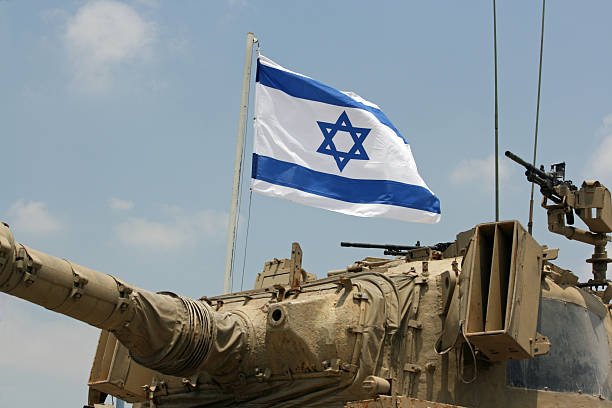Context of the Israel-Lebanon Relationship
The Israel-Lebanon relationship has been marked by a complex history of conflict and tension, originating from territorial disputes and regional dynamics. The roots of this tumultuous relationship can be traced back to the establishment of the State of Israel in 1948, which prompted significant displacement among Palestinian refugees, leading to heightened sensitivities in Lebanon, particularly among its Shia population. This dissent laid the groundwork for future hostilities.
One of the critical events in this ongoing saga was the Lebanese Civil War (1975-1990). Israel’s involvement in this conflict, particularly through its 1982 invasion aimed at rooting out the Palestine Liberation Organization (PLO), further entrenched animosities. Following a series of military clashes and skirmishes, Israel withdrew, but not before seeding long-lasting divisions within Lebanon and setting the stage for subsequent conflicts, including a protracted struggle with the Hezbollah militant group, which emerged in the 1980s.
In the year 2000, Israel unilaterally withdrew from southern Lebanon, leading to the rise of Hezbollah as a significant military and political power in the region. Subsequent tensions culminated in the 2006 Lebanon War, where renewed hostilities resulted in extensive casualties and infrastructural damage on both sides, solidifying Hezbollah’s image as a defender of Lebanese sovereignty. Moreover, ongoing skirmishes along the Israel-Lebanon border continued to contribute to a precarious security environment.
Recent incidents revealing escalating tensions include periodic cross-border violence and Israel’s preemptive strikes against perceived Hezbollah threats. These ongoing hostilities demonstrate how historical grievances and geopolitical ambitions intertwine, complicating prospects for peaceful coexistence. The presence of UNIFIL forces, tasked with monitoring ceasefires and enhancing regional stability, underscores the precarious security dynamics that define the current Israel-Lebanon relationship. Understanding this historical context is crucial in evaluating the origins and implications of recent military actions, particularly Israel’s recent attack on UNIFIL forces.
Details of the Attack on UNIFIL Forces
The recent attack on United Nations Interim Force in Lebanon (UNIFIL) forces by Israel marks a significant escalation in the ongoing tensions in the region. This incident occurred on September 30, 2023, in the southern part of Lebanon, an area known for its complex political landscape and frequent military activity. At the time of the attack, a contingent of UNIFIL peacekeepers was conducting routine patrols to monitor ceasefire agreements and ensure stability along the Israel-Lebanon border.

UNIFIL was established in 1978 under United Nations Security Council Resolution 425 to monitor the withdrawal of Israeli forces from Lebanon and to help restore peace and security. The mandate of UNIFIL includes assisting the Lebanese Armed Forces in maintaining stability and monitoring any violations of the ceasefire agreements. The attack on UNIFIL raises significant concerns regarding the safety of international peacekeeping forces and underscores the delicate balance the organization seeks to maintain in a volatile environment.
Given the nature of this incident, it may have lasting implications for UNIFIL’s operations in Lebanon. The attack threatens to undermine the mission’s credibility and could deter troop contributions from various nations, impeding the effectiveness of peacekeeping efforts. The repercussions of such hostilities warrant thorough examination as they directly affect both local security dynamics and broader regional stability.
Reactions from Lebanon and Israel
The attack by Israel on UNIFIL forces in Lebanon has elicited strong reactions from both sides, reflecting the deeply entrenched sentiments and perspectives within each nation. In Israel, government officials quickly asserted their right to defend national security, framing the action as a necessary response to perceived threats from Hezbollah and other militant groups operating in southern Lebanon. Prime Minister Netanyahu emphasized a commitment to ensuring the safety of Israeli citizens, stating that the actions taken were aimed at protecting the nation from any hostile entities. Political analysts note that this response aligns with the Israeli government’s broader strategy of asserting military dominance in the region.
Conversely, leaders and officials in Lebanon expressed significant outrage at the attacks, condemning the violation of sovereignty and the risks posed to peacekeeping forces. The Lebanese government, along with various political parties, characterized Israel’s actions as provocative and a breach of international law. The Foreign Ministry issued a statement highlighting the need for UN protection and called upon the international community to respond decisively to these provocations. The sentiment among Lebanese citizens also reflects a growing frustration with ongoing military tensions, as many perceive the attack as another escalation that threatens long-lasting peace.
This incident has also stirred public opinion in both nations, with many Israeli citizens rallying behind their government’s narrative of self-defense. In contrast, Lebanese public sentiment appears to be increasingly anti-Israeli, reigniting discussions about national unity against foreign aggression. These contrasting perspectives illuminate the complexities of Israeli-Lebanese relations. As both nations navigate the aftermath of this attack, the potential implications for diplomatic relations and future peace efforts remain deeply uncertain, reminding us of the fragile state of stability in the region.
Regional and Global Implications of the Incident
The recent attack by Israel on UNIFIL forces in Lebanon marks a significant incident that reverberates far beyond the immediate confrontation. This event has the potential to reshape the geopolitical landscape within the Middle East, prompting a re-evaluation of alliances and enmities in the region. The incident has raised alarm among neighboring countries, who are now faced with the precarious balance of power, particularly between Israel and its adversaries, such as Hezbollah. The implications of such an attack could exacerbate existing tensions, leading to an increase in military posturing or even escalation of hostilities across borders.
Moreover, this incident not only affects regional dynamics but also attracts the attention of global stakeholders. The international community, including major powers such as the United States, Russia, and European nations, will likely respond to this incident with a mix of condemnation and calls for restraint. The United Nations, as a prominent actor in peacekeeping operations, may find itself in a challenging position, tasked with upholding peace agreements and ensuring the safety of its personnel in volatile regions. The effectiveness of UNIFIL has already been a subject of scrutiny, and this attack will undoubtedly prompt discussions regarding the future of international peacekeeping efforts in conflict zones.
In this context, Israel’s actions will be closely monitored by the global community. The repercussions could affect international diplomacy and negotiations, particularly regarding Israel’s relationships with other countries in the region. Additionally, questions will arise concerning the adequacy of existing frameworks for peacekeeping and the protection of UN personnel in conflict-affected areas. As global stakeholders assess the broader implications of this incident, the importance of dialogue and collaboration among nations becomes even more imperative in striving for lasting peace and stability in the region.


